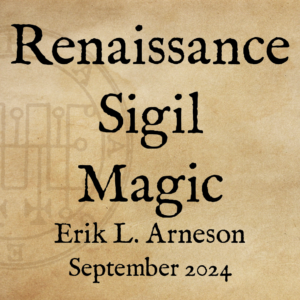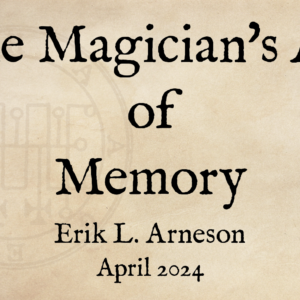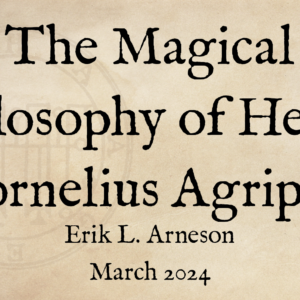A while back, I featured the Devil card as Card of the Week. In that post, I emphasized a few elements of the card’s symbolism that I find very poignant. In particular, the chains or rope binding the foreground figures is voluntary, meaning that the bonds can be thrown off. This symbolism isn’t consistent across… Read more »
On Saturday, June 17th, I will be part of a panel discussion on grimoires. This panel is part of the quarterly speaker series at Esoterika Lodge #227 in Portland, Oregon.
In January, the Portland Scottish Rite Valley started a monthly club night. I came up with an idea for a club to study Hermetic Qabalah as it’s presented in Morals & Dogma and the Scottish Rite degrees. This has been an incredible learning experience for me.
On Saturday, June 3rd, I gave a lecture at the Sekhet-Maat OTO Lodge titled “The Magical Memory: The Art of Memory as an Occult Practice”. Below, please find a link to the slides and a list of references used while preparing the lecture.
I’ve been on a number of podcasts lately, so you should check these out and listen to some great conversations with a lot of really fascinating people.
Loud noises can introduce a new challenge to daily meditation practice. Binaural beats and isochronic tones have helped me overcome that challenge. This article provides some tips for using them in your meditative practice.
Recently, I upgraded my altar into a planetary smart altar. With a gesture, the altar lights up in colors displaying the current planetary day and hour.
I talk a lot about the books I read, but it’s rare that I talk about the books that I’m going to read. Here’s a list of books I’m currently working on and books on deck.
Last Spring, while drinking beer with my good friend Matt, I said to him, “We should record a podcast!” At the time, I just meant that I wanted to be in an episode of his Masonic for The Laudable Pursuit. However, he thought I meant that we should start a whole new podcast. So we… Read more »
There is a fundamental difference between the nature of God described by The Kybalion and that in the Hermetica. Learn more as we dive into these two works and explore their mysteries.





